
Dr. Maria Rumateray is a medical doctor who works to provide remote medical assistance in the most difficult areas of Papua. She was featured in “Mutiara dalam Noken”, one of the videos in Papuan Voices II, directed by FX Making. Here she talks about some of challenges she faces in her work.
- Young Papuans who have seen your work in the film are inspired by your work. What message do you have to them?
All the experiences and dilemma I face in daily life are in the movie that you’ve seen. Things like what I experience when I have to fly to remote areas in the bad weather and what it is to like to cope in these situations. Of course I was scared and I’m still afraid of flying on a helicopter in heavy rains. It’s not like inside a Boeing 737, trust me.
And I’m hoping that all my bothers and sisters who are still in University in Yogyakarta and other places, should complete their study. The should successfully finish it and come back home to build our land. I lived and grew up in Wamena. That’s my kampong. Who else will develop it if it’s not me?
- Would you be able to shed some more light on the situation of health services in Papua?
Last Christmas I had to evacuate a pregnant woman who was fighting to survive because the baby’s placenta was still inside her body for five days. There are no basic medical services near their area. This is a common example of the cases that I have to handle. Before this, the services were so dire, we had to handle cases that are not in our area of work. We covered Yahokimo, Tolikara and so on. Those areas are not included in my job description. We’re not trespassing there, but it’s because we have to provide medical services to the whose need it the most. Usually, in the state of emergency as it is in those areas sometimes, we should be more careful about boundaries.
- What are the biggest challenges you face in your work?
We go to remote areas, areas that aren’t easily accessible. Mostly in the “head of bird” of Papua island, in Kaimana. Those areas are so beautiful. In the field, we have to use GPS because some areas do not appear on the map. We sometime have to rehearse for our landing. Most of these area do not have proper infrastructure like helipad. So we have to jump out from two meters height. We need to exercise this action first for the pilot and also us, the passengers.
We will not enter an area that already have churches and government services health unit services. In the most case we fly out patients with extraordinary situation that can’t be handled in their location.
- Are the a lot of female doctors working in the health sector in Papua?
It is not only me, who is originally from Papua. We have Indonesian doctors in our team, such as my friend doctor Marsela. She serves in Nduga, a location where there’s still an armed conflict going on. She is very brave. She may have a “straight” hair, not like me “curly”, but her heart is all Papua.
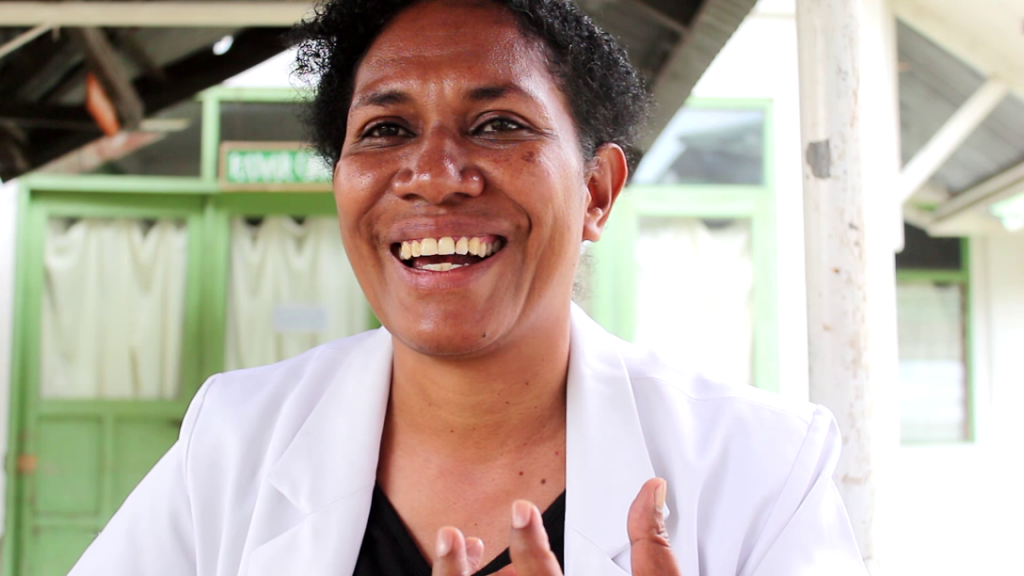
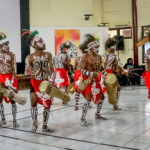
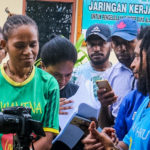
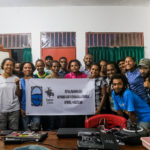
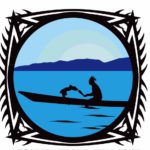
Mia was my student at Krida Wacana Christian University (Ukrida) Medical Faculty.
I am very proud of her, who dedicated herself for her folks in her native land.
God bless you Mia